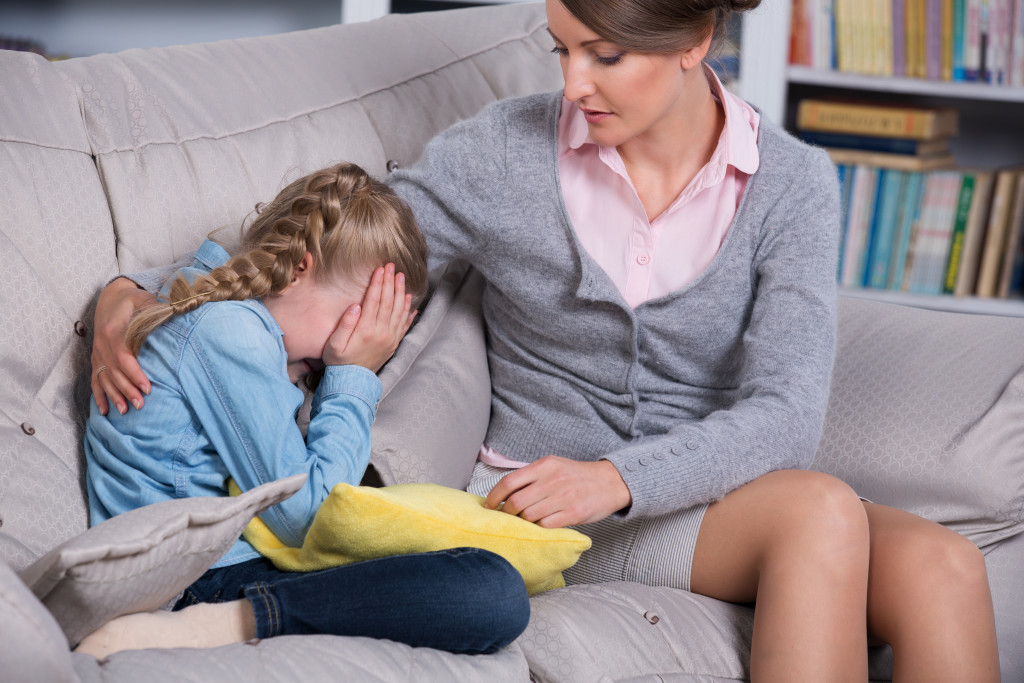Being a parent is one of the most rewarding experiences you can have in life. Seeing your children grow and develop into their own unique individuals is an incredible feeling. Of course, being a parent also comes with its fair share of challenges. There are times when it can be difficult to know what the best course of action is. Should you be more lenient or more strict? How do you strike the perfect balance between showing your love and providing discipline? Here are some tips that can help guide you in answering these questions.
1. Communicate openly and honestly with your children.
One of the most important things you can do as a parent is to communicate openly and honestly with your children. This means being willing to listen to them when they want to talk and being honest with them when they ask tough questions. It can be tempting to try to shelter your children from the harsh realities of the world, but the truth is that they need to know about both the good and the bad in order to develop into well-rounded adults.
Communicating well also means being patient and holding back your emotions when they come to you with things you might not like to hear. When your child comes to you with a problem that would enrage you, such as breaking things at home or other problematic behaviors, do not fly off the handle. Instead, focus on the problem, how to solve it, and how to avoid it in the future. This way, you show them that making bad decisions don’t make them bad people, and that they can trust you to help them be better.
2. Show them that you love them—every day.
Your children need to know that they are loved—and not just on special occasions like birthdays or holidays. They need to feel your love on a daily basis. One way to do this is by making quality time for them every day, even if it’s just for a few minutes before bedtime. Another way to show your love is by telling them—and meaning it!—when you say “I love you.” This works best in combination, as your children might not yet understand different love languages or know what those are. By combining different love languages, they can learn to understand that there are actions and patterns of behavior that mean the same thing as telling them you love them. Then, they can start displaying this behavior themselves and become more resilient adults.
3. Be consistent with your rules and expectations.
In order for your children to feel secure and well-adjusted, they need to know what your rules are and what you expect from them on a daily basis. This doesn’t mean that you can never change the rules or be flexible—of course, there will be times when that’s necessary—but it does mean that you need to be consistent in general so that your children always know what’s expected of them.

4. Break bad habits and cycles
One of the most difficult things about being a parent is breaking the cycle of abuse that may have been passed down from generation to generation. If you’re struggling with this, know that you’re not alone. Many parents find themselves in the same position. The good news is that it is possible to break the cycle. Here are a few tips that may help:
- Acknowledge the cycle and its effects on your life and your children’s lives.
- Seek professional help to address the underlying issues that contribute to the cycle.
- Get support from friends and family members who can offer encouragement and practical assistance.
- Take steps to change your own behavior and create a new, healthier pattern for your family.
- Persevere even when it feels like progress is slow or impossible. Remember that Rome wasn’t built in a day!
Apart from these cycles of abuse, you may have some other habits that need breaking. These can be as serious as addiction to substances like drugs or alcohol, or maybe just little acts of micro-aggression like backhanded compliments or ridiculing flaws. You might need to take time in a private detox session for alcohol and other substances. As for micro-aggression, the best way to find out is to ask the people around you. Then, try to catch yourself doing it and stop yourself. You’ll be surprised at how much your relationships with your children improve once you start making an effort to break these habits.
5. Don’t compare them to other children—or yourself at their age.
Every child is unique and special in their own way, so comparing them to other children—or yourself at their age—isn’t fair or helpful. It’s important for your children to feel like they can be themselves without feeling like they have to live up to some impossible standard. Accepting them unconditionally and supporting their growth, no matter how fast it goes or what direction it takes, is one of the best things you can do as a parent.
6. Be patient with them—and yourself!
Parenting is hard work, and it’s important to cut yourself some slack every once in a while. There will be times when things don’t go according to plan or when you make mistakes—and that’s okay! What’s important is that you learn from those mistakes and continue striving to be the best parent you can be. Patience is key, both with your children and with yourself!
Final Words
Being a parent isn’t easy, but it’s definitely worth it. Remember, communication, consistency, unconditional love, and patience are all key ingredients in successful parenting!

